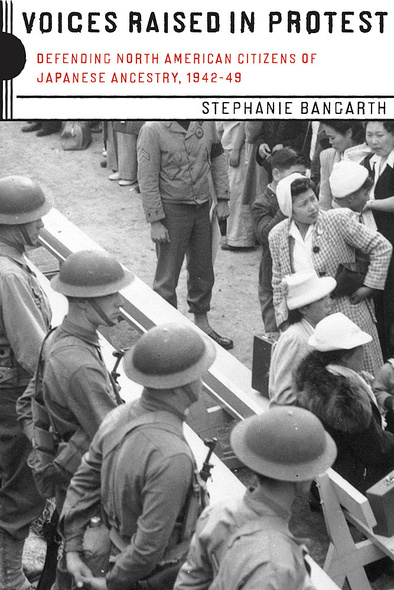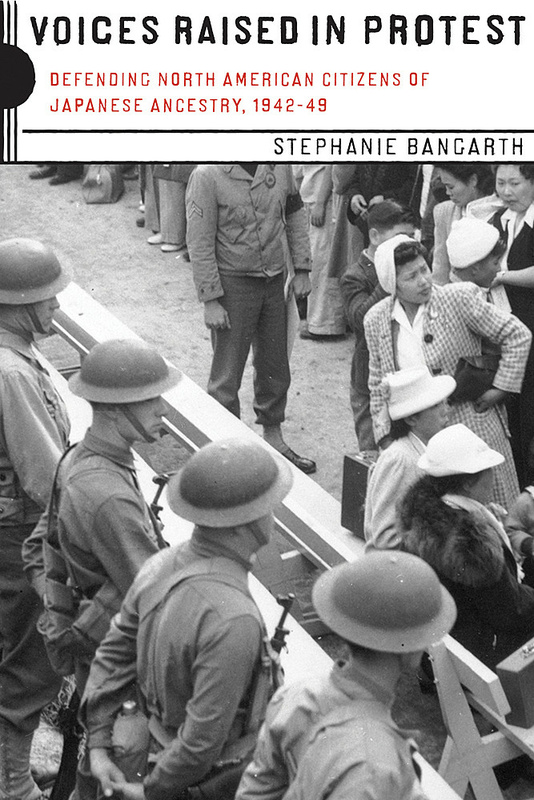
Voices Raised in Protest
Defending North American Citizens of Japanese Ancestry, 1942-49
The uprooting and confinement of Japanese Americans and Japanese Canadians during the Second World War constituted the worst violations of citizenship rights in twentieth-century North America. Voices Raised in Protest examines the meaning and impact of these actions and how they diverged in Canada and the United States.
Many North Americans opposed their governments’ wartime policies toward their fellow citizens of Japanese extraction. In this timely book, Stephanie Bangarth studies the efforts and discourse of anti-internment advocates, and discusses the various cases they brought before the courts. Persons of Japanese ancestry were also active in their own defence. Their critiques of the removal and deportation policies were seminal examples of a growing general interest in civil rights, and would provide a foundation for rights activism in subsequent years.
Voices Raised in Protest offers valuable perspective for today’s debates over ethnic and racial profiling, treatment of "enemy combatants," and tensions between civil-liberty and security imperatives. It will be of interest to activists and general readers as well as to scholars and students in history, law, politics, and Asian Canadian/American studies.
The greatest significance of Bangarth’s book is that is compares and contrasts the evacuation, internment, and relocation of the Nikkei in the US and Canada. […] This thoroughly researched book draws from a wide range of sources that all illustrate the various ways in which observers and participants protested and defended the evacuation and relocation of the Nikkei. […] Overall, a useful addition to internment historiography.
This important book should be part of any senior undergraduate or graduate course on human rights history, ethnic history, or even comparative history.
A meticulously researched book on the campaigns to protect the citizenship rights of Japanese Americans and Japanese Canadians amid their wartime exclusion and confinement. Bangarth skilfully contrasts American and Canadian institutions and ideas, presenting readers from each country a chance to better grasp the nature of civil society and race relations in the other -- areas in which complacency, defensiveness, and stereotyping all too frequently take hold.
Introduction
1 A Practicable Coincidence of Policies?
2 The CCJC and the ACLU: Engaging Debate, 1942-1946
3 "Dear Friend": Advocacy Expanded
4 Advancing Their Rights: Minorities and Advocacy
5 "The war is over. Long live the war!" Legal Battles to Obtain Justice during and after the Second World War
6 Conclusion: "They Made Democracy Work"
Afterword
Appendices
Notes
Bibliography
Index






